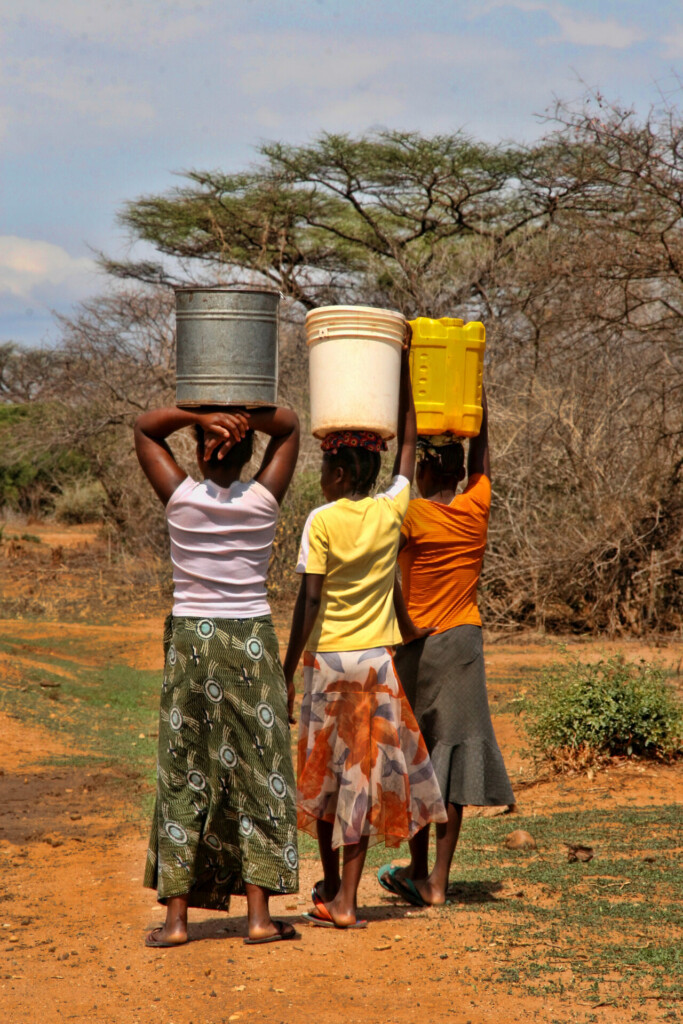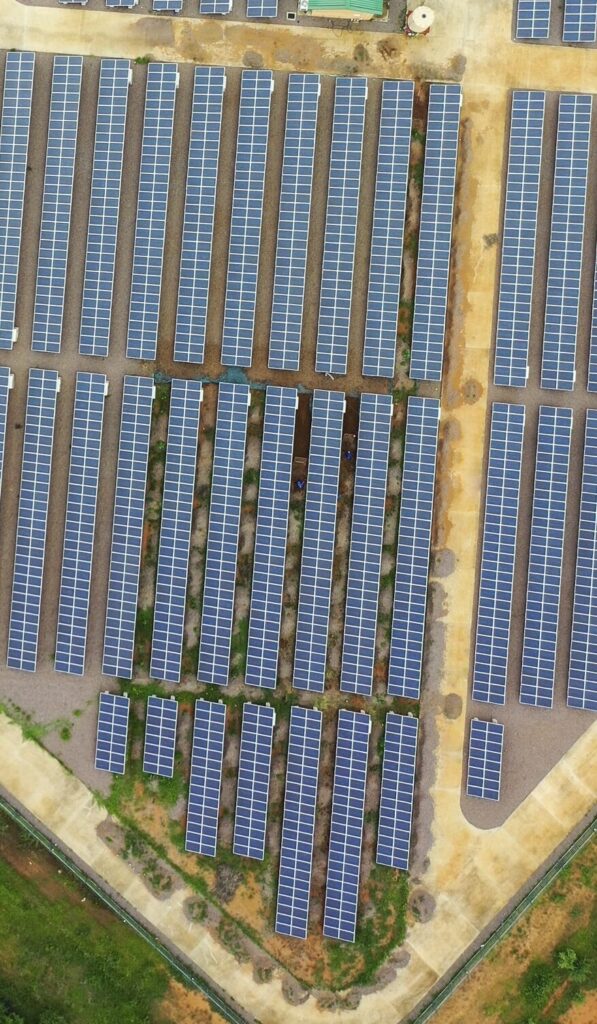At Climate Compatible Growth (CCG) our engagement and research accelerates the release of domestic and international finance for inclusive, low-carbon infrastructure and economic growth in Low- and Middle-Income Countries (LMICs). Our methods – created in partnership with our Country clients, and supported by the UK Government’s Foreign, Commonwealth & Development Office (FCDO) – have a proven track record, helping partners mobilise over $11 billion from International Finance Institutions in just two-years. We move beyond traditional research and technical assistance to build enduring, self-reliant national systems that align nationally driven economic development with climate action – energising policy evolution and mobilising finance well into the future.
The Challenge: Overcoming Systemic Barriers to Investment
LMICs often struggle to attract the finance (and IFIs to disperse the funds) needed for climate-compatible development due to a set of interconnected, “wicked” problems:
- Government Fragmentation: A lack of coherence between ministries stalls progress, particularly the early involvement of the Ministry of Finance in sectoral planning.
- Uncoordinated Support: Fragmented technical assistance from various development partners
often works at cross-purposes, undermining national strategy. - A Weak Project Pipeline: The above issues result in too few bankable, investment-ready projects,
as upstream policy and planning are not aligned with financier requirements. - A Local Knowledge Gap: National universities often lack the incentives and capacity to
conduct policy-relevant research or produce graduates with the skills to fill critical institutional
roles, perpetuating a cycle of dependency on external expertise.


Our Process: Building a Self-Sustaining National Ecosystem
The CCG model directly addresses these challenges by creating a virtuous cycle of local expertise, evidence-based policy, and effective finance mobilisation. The process is government-led and founded on deep partnership.
Mandate and Invitation: Our engagement begins only upon invitation from an LMIC government (either directly or via a partner organisation), secured by high-level political commitment. This mandate empowers technical analysts to collaborate across ministries and drive reform.
Partnership and Co-Creation: We establish an in-country ecosystem linking key government institutions, local universities, and International Financial Institutions. We work with our partners to co-design work plans and deliverables that are context-specific and politically informed.
Phased Capacity Building: We deliver tailored training and support through a unique, phased approach:
Phase 1 (Co-Create): CCG experts work directly alongside government and university teams to
produce the first round of analytics, policy reforms, and finance applications, providing intensive, hands-on guidance. This is embedded via locally driven Special Interest Groups (SIGs) that can be important vehicles to ensure local ownership and agency.
Phase 2 (Coach): We transition to a coaching role as the local institutions and their experts take the
lead, embedding the skills and processes needed for independent operation.
Phase 3 (Co-convene): LMIC champions are now in a position to lead and direct the process allowing for efficient south–south and south–north exchange. CCG, together with regional partners, platforms and enables those champions. The final phase shifts from direct support to driving strategic incentives and locally sourced, self-sustaining systems.
Strengthening the Science–Policy Interface: A unique element is to incentivise and create a link between local universities and government. This ensures a continuous flow of evidence from universities to inform policy, while government needs shape research agendas and the curriculum for the next generation of analysts and leaders.
JOIN THIS PARTNERSHIP OF EXCELLENCE
International Organisations and Partners
CCG actively collaborates with a diverse range of national donor agencies, international organisations, and international financial institutions to maximise its impact and facilitate climate-compatible
development globally.
National Donor Agencies:
The majority funder is the UK Government’s Foreign, Commonwealth & Development Office (including UK PACT). Other co-funders include the Danish Energy Agency, European Commission,
French Development Agency, and the European Climate Foundation via the 2050 Pathway Platform.
International Organisations and partnerships:
OpTIMUS Community of Practice, Sustainable Energy for All, World Resources Institute, International Atomic Energy Agency, UN Department of Economic and Social Affairs, United Nations Development Programme, United Nations Economic Commission for Africa, United Nations Economic Commission for Asia and the Pacific, 2050 Pathways Platform, International Energy Agency, Clean Cooking Alliance, Energy Sector Management Assistance Program.
International Financial Institutions:
World Bank Group, African Development Bank, Inter-American Development Bank, Asian Development Bank, Climate Investment Funds.
Add your strength to this partnership of excellence: CCG receives its current core funding from the UK Government. It produces public goods that can be created, deployed, and scaled in partnership. It is a research partnership administered by Loughborough University, with the universities of Cambridge, Imperial, the Open University, Oxford, Strathclyde, UCL, KTH in Sweden and non-academic partners Climate Parliament and the Centre for Global Equity. It also subcontracts regional universities and organisations.
GET INVOLVED – HERE’S HOW YOU CAN SUPPORT US:
- End Users: Use Our Work. You can use CCG’s outputs – like research and tools – without a formal partnership and without providing funds. We track the impact of our work, so your use of our resources still helps our mission, and you’ll have access to the reporting for your own result mapping.
- Collaborators: Contribute in-kind. If you want to partner with us, our “contribution in-kind” model is a great fit. This involves providing non-cash resources, expertise, or services. We don’t receive funds, but we benefit by being able to count these among our outcomes and impact.
- Funders: Provide Financial Support. If you are keen to provide financial backing, the “funder” model ensures full co-branding and co-design of aspects of the work using our proven approaches and tools. (The extent of co-branding and involvement can vary depending on your needs and contribution). As a funder you will get direct access to the CCG delivery ecosystem which impacts decision-makers and hundreds of analysts – as well as our world-leading academics.
GET INVOLVED:
Join CCG to amplify impact with a proven public goods programme. We are a research partnership administered by Loughborough University, with the universities of Cambridge,
Imperial, the Open University, Oxford, Strathclyde, UCL, KTH in Sweden and non-academic partners Climate Parliament and the Centre for Global Equity.
We also subcontract with regional universities and partner organisations.
- JOIN US AS
- an End User: use our freely available open research and tools in your own work
- a Collaborator: partner with us to deliver joint activities, through in-kind support.
- a Funder: providing financial support for core delivery, or co-created activities, and getting access to our delivery ecosystem of decision-makers, hundreds of analysts, and world-leading academics.
LET’S BUILD MORE TOGETHER: email us at ccg@lboro.ac.uk
For partners considering core funding alongside the FCDO, contact alfie.alsop@fcdo.gov.uk
For Governments/universities: Please consider contacting counterparts in the UK’s FCDO (find your local UK focal point through www.gov.uk/world/embassies) and ask them about
supporting the CCG offer. Direct funding may not be immediately available, but your official interest can help initiate a process to that funding through donor coordination and other mechanisms.
